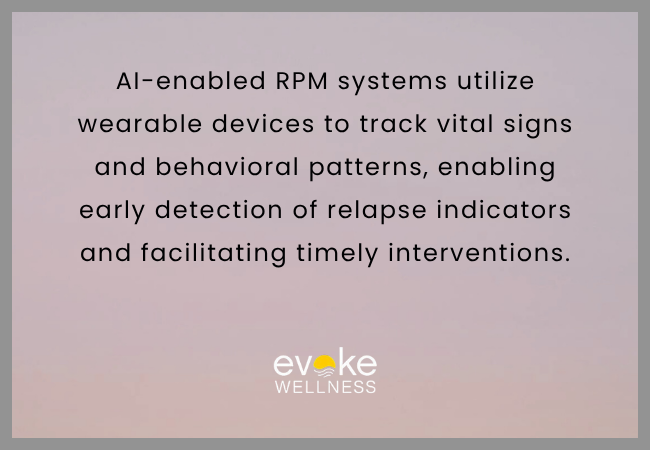Detoxification, or detox, is a crucial first step in the journey to recovery from substance abuse, and as the field evolves, so too does the way detox is approached. The future of detox promises to be shaped by a combination of emerging medications and cutting-edge technology, offering a more tailored, efficient, and supportive recovery process. As advancements in medical research continue, new methods are being developed to enhance detoxification programs, making them safer, more effective, and more comfortable for individuals.
In this post, we will explore the role of emerging medications in detox, how technology-assisted monitoring is transforming detox programs, and the significance of these innovations for long-term recovery.
The Role of Emerging Medications in Detox
Detoxification is often marked by withdrawal symptoms, which can range from mild discomfort to life-threatening conditions, depending on the substance being abused and the duration of use. Historically, detox has been a challenging and sometimes painful process. However, as research progresses, new medications are emerging to help manage withdrawal symptoms more effectively.
-
Medications to Alleviate Withdrawal Symptoms
One of the most significant breakthroughs in detoxification is the development of medications that help manage withdrawal symptoms. These medications can make the detox process safer and more comfortable, allowing patients to focus on their long-term recovery goals rather than the immediate discomfort of withdrawal. For example, medications like buprenorphine and methadone have been proven effective in managing opioid withdrawal, reducing cravings, and preventing relapse. These medications are increasingly used in detoxification centers, including behavioral health treatment centers like Evoke Wellness, to help individuals manage withdrawal symptoms and ease the transition into a recovery-focused environment.
-
Medications for Alcohol Withdrawal
Alcohol detox can be particularly dangerous, as it can lead to severe withdrawal symptoms like seizures and delirium tremens (DTs). Newer medications, such as benzodiazepines and anti-seizure drugs, are being utilized to minimize these risks and help patients safely navigate the detox process. Benzodiazepines, for example, help manage anxiety, agitation, and insomnia, while anti-seizure medications reduce the likelihood of dangerous withdrawal-related seizures.
-
Medications for Co-Occurring Disorders
Many individuals in detox programs also struggle with co-occurring mental health disorders, such as depression or anxiety, which can complicate the detox process. Medications that treat these disorders, such as antidepressants, anti-anxiety medications, and mood stabilizers, are becoming an integral part of detoxification and recovery. In some cases, medications like antipsychotics may be used to stabilize patients with more severe conditions, providing a comprehensive approach to both physical and mental health during detox.
-
Medications for Polydrug Users
Many individuals who seek detox have abused multiple substances, a phenomenon known as polydrug use. The complexity of detox for polydrug users has led to the development of medications tailored to manage the withdrawal symptoms of multiple substances simultaneously. Emerging research into the pharmacology of polydrug abuse holds promise for more effective treatment protocols, leading to better detox outcomes for these individuals.
Technology-Assisted Monitoring in Detox Programs
Along with medications, technology is playing an increasingly important role in the future of detoxification. Technological advancements are enhancing the way detox programs are monitored and managed, leading to better patient outcomes and more personalized care. These technologies allow for real-time data collection, providing healthcare professionals with valuable insights into each patient’s progress.
-
Remote Monitoring Tools
One of the most significant advancements in detoxification technology is the use of remote monitoring tools. These tools can track a patient’s vital signs, including heart rate, blood pressure, and oxygen levels, as well as other physiological markers, such as hydration levels and body temperature. This data is sent directly to healthcare providers, allowing them to monitor a patient’s progress in real-time and make necessary adjustments to their treatment plans. This kind of monitoring can be particularly useful for individuals undergoing detox at mental health treatment programs like Evoke Wellness, as it allows healthcare providers to identify complications early and intervene before they become serious.
-
Wearable Technology for Detoxification
Wearable devices, such as fitness trackers and health monitors, are being increasingly used in detox programs to provide continuous feedback on a patient’s physical state. These devices can track a variety of parameters, including sleep patterns, activity levels, and stress indicators. Such technology helps medical professionals gain deeper insights into the recovery process, allowing for more personalized care plans and interventions. These devices also allow patients to take a more active role in their own recovery, fostering a sense of autonomy and responsibility.
-
Telemedicine and Virtual Support
Another area where technology is improving detox programs is telemedicine. Virtual therapy sessions, check-ins with counselors, and support groups can now be conducted remotely, providing patients with continuous care even after they leave the residential detox center. This is especially helpful for those who may not have access to in-person therapy or live in remote areas. Additionally, virtual platforms allow individuals to access a behavioral health treatment center like Evoke Wellness from the comfort of their homes, ensuring that recovery continues even after detox is complete.
-
Artificial Intelligence and Predictive Analytics
In the future, the integration of artificial intelligence (AI) and predictive analytics could revolutionize detox programs. These technologies can analyze vast amounts of patient data to predict withdrawal symptoms, monitor recovery progress, and even anticipate potential relapse risks. By leveraging AI, healthcare providers can create highly personalized detox protocols tailored to each patient’s unique needs. These technologies also enable healthcare teams to make data-driven decisions, improving the overall effectiveness of detox and ensuring patients receive the care they need.
-
Virtual Reality in Detoxification Programs
While still in the early stages of development, virtual reality (VR) is emerging as a potential tool in detox programs. VR can be used to provide immersive therapeutic experiences that help patients relax, reduce stress, and manage cravings. It can also be used to simulate real-world scenarios that patients may face during recovery, helping them build coping skills in a safe, controlled environment. This innovative approach could play a key role in supporting patients during detox, offering them an alternative to traditional therapy and helping them stay engaged in their recovery journey.
The Benefits of Integrated Approaches in Detox
The integration of emerging medications and technology into detoxification programs offers several key benefits:
-
Personalized Care
The use of medications and technology allows detox programs to offer more personalized care tailored to each individual’s specific needs. With the ability to monitor vital signs, mental health, and withdrawal symptoms in real-time, healthcare providers can adjust treatment plans quickly to ensure the best outcomes for each patient.
-
Increased Safety
Emerging medications can help alleviate the physical discomfort of withdrawal and minimize the risk of dangerous side effects, such as seizures and heart complications. Technology-assisted monitoring ensures that healthcare providers are always aware of a patient’s condition, increasing the safety of detoxification.
-
Improved Patient Engagement
Wearable technology and virtual therapy platforms allow patients to take a more active role in their recovery process. By receiving real-time feedback and engaging in virtual support groups, patients feel more connected to their treatment plan, increasing the likelihood of long-term recovery.
-
Enhanced Support for Co-Occurring Disorders
For individuals with co-occurring mental health disorders, emerging medications and technology can provide a more comprehensive approach to detox. By addressing both physical and mental health simultaneously, these treatments improve the likelihood of a successful recovery.
Why Choose Evoke Wellness for Detoxification?
At Evoke Wellness, we recognize that detoxification is not a one-size-fits-all process. We offer mental health treatment programs in Miramar, Florida that are tailored to the unique needs of each individual. Our team of compassionate professionals utilizes a combination of traditional treatments and cutting-edge technology to ensure that every patient receives the best possible care. With our behavioral health treatment center and innovative treatment options, including partial hospitalization programs in Miramar, Florida, we are committed to helping you build a foundation for long-term recovery.
Conclusion
The future of detox is brighter than ever, thanks to emerging medications and technology-assisted monitoring. These advancements are helping to make detox more comfortable, safer, and effective, allowing individuals to focus on long-term recovery and a healthier future. Whether you are seeking detox for substance abuse, mental health treatment programs in Miramar, Florida, or co-occurring disorders, embracing these innovations can help you navigate the path to wellness with confidence.
If you or a loved one is ready to begin the detox journey, contact us at 866.429.2960 today to learn more about how we can support your recovery.
Frequently Asked Questions (FAQs)
What are the benefits of emerging medications in detox programs?
Emerging medications in detox programs are designed to reduce withdrawal symptoms and make the detox process more comfortable. These medications help alleviate physical discomfort, prevent dangerous side effects, and support patients through the withdrawal phase, making detox safer and more effective.
How does technology assist in detox programs?
Technology assists in detox programs through tools like remote monitoring devices, wearable health trackers, and telemedicine platforms. These technologies provide healthcare providers with real-time data on vital signs, symptoms, and overall progress, allowing for quick adjustments to the treatment plan and ensuring a safer detox process.
Can virtual reality help in the detoxification process?
Yes, virtual reality (VR) is an emerging tool in detox programs. It helps patients relax, reduce stress, and manage cravings through immersive, therapeutic experiences. VR also helps individuals practice coping skills in a controlled environment, supporting them throughout the detox journey.
What is a Partial Hospitalization Program (PHP) in detox?
A Partial Hospitalization Program (PHP) is a structured treatment plan that provides patients with intensive support during detox while allowing them to return home at night. It combines therapeutic interventions, medical supervision, and support to address both the physical and psychological aspects of detoxification.
How does Evoke Wellness incorporate technology in detox?
At Evoke Wellness, we utilize advanced technology-assisted monitoring and wearable health devices to track vital signs and provide real-time data on patient progress. We also offer virtual therapy sessions and remote check-ins to ensure continuous care throughout the detox process.
Are emerging medications effective in treating co-occurring disorders during detox?
Yes, emerging medications are increasingly used to manage co-occurring mental health disorders during detox. These medications help address both physical withdrawal symptoms and mental health issues, creating a comprehensive approach to detox and supporting long-term recovery.



